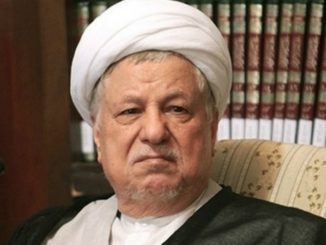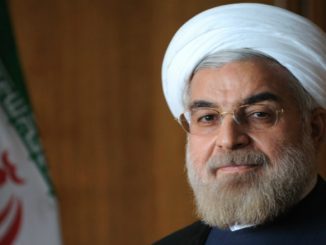
Iran’s Supreme Leader, Ali Khamenei, who enjoys the final say on Iran’s domestic and foreign policies, has repeatedly labeled any opposition to his rule and policies (including those of Iran’s reformists and supporters of the Green movement) as “Fitna”.
The term “Fitna” comes from an Arabic verb that means to “seduce, tempt, or lure.” Khamenei uses these words to describe those who divide Muslims, endanger Islam, prioritize their own interests over Islamic duties, or those who desire to change the political establishment of the Islamic Republic. “Fitna” is Khamenei’s “red line” and anyone who engages in “Fitna” should be eliminated.
But if pursuing policies and rhetoric that divide, rather than unify, Muslims is “Fitna” for Khamenei, doesn’t his own recent remarks make him a “Fitna” as well?
Using incendiary and provocative language, Khamenei recently labelled a series of accusations and criticism against Saudi Arabia. He called the Saudi leaders names, and even asked the Muslims to challenge Saudi Arabia’s custodianship of Islam’s holiest sites in Makkah and Madinah.
Khamenei’s remarks come at a critical time when Muslims are performing the Hajj, a religious pilgrimage to Islam’s most holy sites. Khamenei wrote on his website: “The world of Islam must fundamentally reconsider the management of the two holy places and the issue of Hajj.”
The Hajj is supposed to be a symbol of unity between all Muslims. Khamenei decided to prevent Iranians from performing the Hajj. This suggests that he gives priority to his political interests over Muslims’ holy duties. But why has Khamenei felt the urge to issue such provocative remarks?
Politicization of Shiite Islam
Politically speaking, Khamenei’s remarks contradict his political and religious interests. Khamenei’s political interests – that dictate the idea that he should reassert Iran’s power and preeminence in the region – trumped the religious need of Iranian citizens who desire to perform the Hajj. To serve his political reasons and further Iran’s regional hegemonic ambitions, it is Khamenei, not anyone else, who is preventing the Iranians from traveling to Saudi Arabia.
Khamenei’s fallacy
Religiously speaking, Khamenei does not consider himself to be only the Imam (leader) of the Iranian people or the Shiite community. From his perspective and the modern theory of Shiite theology, he views himself as the leader of the Umma (all Muslims) across the world. This transformation in the Shiite theology – to view Iran’s Supreme Leader as the religious and political leader of all Muslims – was materialized and set up by Ruhollah Khomeini, the founding father of the Islamic Republic in 1979.
Once Khomeini obtained power, he argued that a religious leader should not be working in separation from politics, but should be the ultimate ruler of all the nation’s affairs. For hundreds of years, in traditional Shiite theology and among most respected Shiite religious leaders, religion and the divine spirituality were separate from politics.
Many Shiite theologians still oppose Khomeini’s and Khamenei’s perception. That is why many well-known scholars before Iran’s revolution, including Dr. Ali Shariati, completely miscalculated by ruling out the idea that Iran would be run by the Shiite clerics after the revolution.
However, with hard power and brute force during the early years of the Islamic revolution, Khomeini and his team set up and operationalized the concept of Vilayat-e-Faqih (the Guardianship of the Islamic Jurist, also called the Governance of the Jurist).
This idea gave Iran’s Supreme Leader (the Imam) custodianship over all people (not only the Shiite). But what he lacks to fully fulfill his mission is the custodianship and control over Makkah and Madinah. This significantly decreases his leverage in the Muslim world.
Khamenei’s modus operandi during, his nearly three decades rule, has been to dodge responsibility by holding other people accountable for the repercussions of his policies. He is harshly criticizing Saudi Arabia so that the Iranians who missed the Hajj because of his policies would not point finger at him and blame him.
Khamenei’s incendiary remarks also suggest that Iran’s interventionist, aggressive, and militaristic actions are spiraling toward extremism rather than moderation, most significantly since the United States reached an agreement with Iran on the nuclear program.
Khamenei’s decision to prevent Iranians from performing the Hajj suggests that he keeps political interests above religious duties and this approach is most likely to backfire.
Dr. Majid Rafizadeh – al Arabiya
Dr. Majid Rafizadeh, an Iranian-American political scientist and Harvard University scholar, is president of the International American Council.



